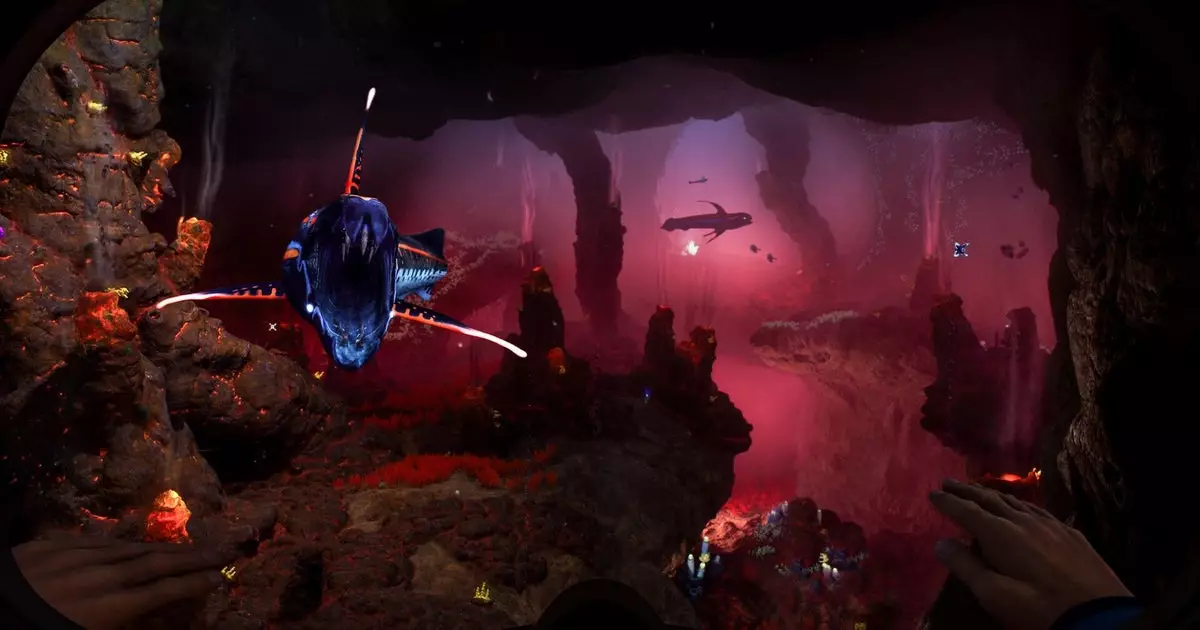The highly anticipated development of Subnautica 2 has faced an unexpected setback, not because of technical hurdles or creative differences, but due to corporate power struggles and financial considerations. The decision to delay the game’s release into 2026, unveiled by Bloomberg, reflects a broader trend where corporate interests threaten to overshadow creative ambitions. This delay, justified by the studio as a means of quality assurance, masks underlying motives rooted in financial strategies and control dynamics.
The revelation that Krafton, the publisher, is withholding a substantial $250 million bonus originally slated for the studio’s employees underscores how financial incentives can distort development priorities. Instead of fostering innovation and trusting the studio’s readiness, Krafton’s decision appears driven by a desire to maximize control over the timing and outcome, risking alienating both developers and fans. The fact that studio founders and senior leaders, such as Charlie Cleveland, are vocal about their dismay highlights a dissonance between creative confidence and corporate coercion.
This scenario exemplifies how corporate power can manipulate project timelines for monetary gains, often at the expense of the creative process and community trust. When a game—so close to being finished—is delayed, it’s rarely a straightforward technical concern; instead, it’s a strategic move driven by financial calculations. Krafton’s language about wanting “the right game at the right time” rings hollow when scrutinized against their actions that suggest profit motives.
Leadership Turmoil as a Manifestation of Corporate Overreach
The recent upheaval within Unknown Worlds underscores how corporate interests can destabilize established creative teams. The abrupt firing of senior executives, including co-founder Charlie Cleveland, signals a shift that is more about asserting control than about fostering a sustainable creative environment. Cleveland’s candid lament—that he was blindsided by the sudden management reshuffle—reveals a disturbing disconnect: a studio team that believes the game is ready for release but is forced into silence or compliance by an external authority.
Bringing in new leadership, such as Steve Papoutsis, is often presented as a necessary step for strategic growth. Yet, in this context, it appears more as a mechanism for Krafton to exert influence and to delay without overtly admitting as much. The fact that Papoutsis’s response to questions about the delay indicates a focus on alignment rather than consensus reveals an underlying culture of top-down decision-making, where dissent is sidelined and transparency is scarce.
This leadership upheaval symbolizes a broader concern: corporate giants see creative studios not as equal partners but as resources to be managed, directed, and, if necessary, replaced once they no longer serve the company’s strategic interests. When creative founders are pushed out and replaced by industry veterans aligned with corporate agendas, the risk is a homogenized development process that prioritizes financial outcomes over originality.
The Irony of “Quality” in a Profits-Driven Industry
Despite claims that delays are meant “to give ourselves a little extra time,” the underlying intent—whether explicitly acknowledged or not—often revolves around financial calculus. Krafton’s record profits in the first quarter of 2025, totaling over half a billion dollars in sales, demonstrate a corporate capacity to prioritize shareholder returns over creative integrity.
The contrast between the studio’s readiness and the publisher’s hesitations exposes a core tension in modern game development: the myth of “quality first” versus the reality of financial imperatives. Industry insiders understand that delays frequently serve as strategic maneuvers to maximize revenue, manage marketing cycles, or defer costs. The narrative of giving “extra time” becomes a euphemism that conceals underlying profit motives, which sometimes result in sacrificing the quality and the community’s trust.
Furthermore, the discord between what the developers believe is ready and what publishers deem appropriate underscores a fundamental conflict: creative teams possess intimate knowledge of their work, while executives often have broader financial backgrounds and prioritizations. When these perspectives clash, it seldom benefits the end consumer, who is left waiting and disappointed while the industry continues to chase short-term gains.
The Power Dynamics That Undermine Fan Loyalty
Subnautica 2’s story is emblematic of a wider malaise affecting the gaming industry: the erosion of trust between developers, publishers, and players. Fans eagerly wishlisted the game, hoping for a breakthrough experience. Yet, corporate interests seem poised to jeopardize the very core of that enthusiasm by prioritizing profits over quality.
The disconnect between the studio’s message—that the game is “ready for early access”—and Krafton’s intentions to delay exemplifies how corporate messaging can distort community perceptions. When fans learn they have been kept in the dark, or that delays are driven by profit-driven motives rather than genuine quality concerns, it fosters cynicism and skepticism. Their loyalty is at stake, as they feel increasingly marginalized by an industry that prioritizes quarterly profits over long-term community engagement.
The case of Subnautica 2 reveals how corporate power can threaten the future of innovative gaming experiences. Instead of nurturing creative talent, publishers are becoming risk-averse and controlling, leading to fewer groundbreaking titles and more corporate machinery chasing after predictable returns. This trend diminishes the cultural value of gaming—a medium that thrives on risk, creativity, and community.
—
Note: This article offers a critique of the intertwined dynamics of corporate influence, leadership upheaval, and community trust within the context of Subnautica 2’s delayed development, emphasizing the broader implications for the gaming industry.

